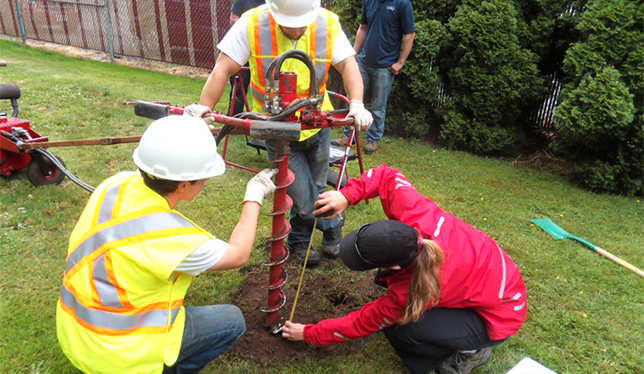
Most experts believe British Columbia is due for a major earthquake. Carlos Ventura, director of the University of British Columbia’s Earthquake Engineering Research Facility, agrees the province is vulnerable, but as for when a seismic disruption may strike, he has no idea.
Rather than sit and wait for it, Dr. Ventura and his team have launched an initiative to make B.C. more quake-ready. In the summer of 2014 they created and set up early detection sensors for earthquakes in more than 40 locations in and around the Vancouver area that can sense the waves of an earthquake before damage occurs.
During an earthquake, the primary waves are non-destructive, Dr. Ventura explains, while the secondary waves are the ones that cause damage to buildings and other structures. By detecting the primary waves as early as possible, the sensors would be able to alert residents earlier, giving them a few extra seconds to take cover. Although a few seconds may not seem long, he says, “Sometimes 10 seconds can be the difference from life and death in an earthquake.”
Dr. Ventura and his team use a large number of sensors, rather than just one or two as seen in early warning systems in other cities, in the hope that they can better locate the fault lines that run underneath B.C. The close the distance between a sensor and the fault line means more residents can be alerted sooner. “We already know these faults have generated earthquakes in the past, but we don’t know exactly where they are,” he says.
The City of Vancouver and UBC take earthquake preparedness seriously. Oct. 15 was Earthquake Day, an annual city-wide effort to raise earthquake awareness and achieve “earthquake resilience.” The annual province-wide Great B.C. ShakeOut is also held on the same day, encouraging residents to “Drop, Cover, and Hold On” in rehearsal for the real thing.
But what good is any system if only a handful of researchers (and a few schools) can connect to this early warning system. Why isn’t there more of a push to create a *public* amalgamated media (cell phone app, Internet, TV, radio, and street sirens) early warning system like in Japan?
Or maybe we are waiting for hindsight? After the big one… then we can talk about what we should have done.
I have read dozens of news stories about this minor earthquake and not a single reporter or expert has bothered to ask or mention anything about the system we need throughout all of this region (not just in / dedicated to B.C. or Washington).
If I had an API, I would develop a mobile app myself!